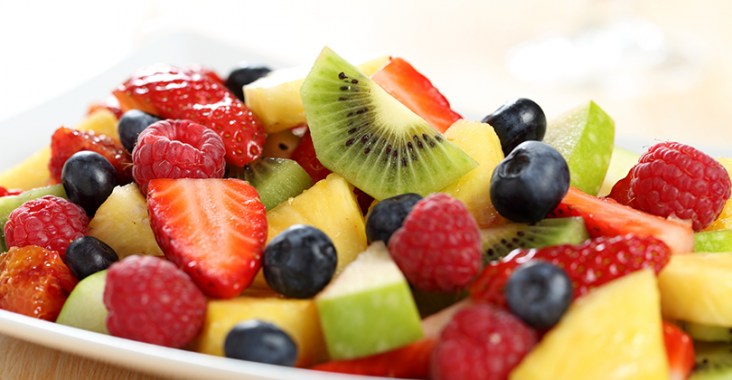
This article was originally published by the blog we all love here at Withings: Greatist. Greatist create preventive health and wellness content for the people interested in making healthier choices, giving them the best information and inspiration around to help turn health into a lifestyle. Their vision is so close to ours that we’ve decided to pick some of their articles for you, Withingers.
Strawberries, bananas, oranges, kiwi… the list goes on and on. Fruit is touted as a super-healthy snack option, but while the fiber and other nutrients found in fruit are a great part of any diet, many varieties can also be very high in sugar. And too much sugar, regardless of where it comes from, can have some seriously negative effects. (Yep, even if that sugar is from fruit!) Does this mean run from the produce aisle screaming? Definitely not. But it might be smart to keep an eye on fruit-based sugar consumption.
Can Fruit Make You Fat? The Need-to-Know
The American Heart Association recommends no more than six teaspoons (about 30 grams) of sugar per day for women, or nine teaspoons (45 grams) per day for men. And for men and women ages 19 to 30, the USDA recommends two cups of fruit per day. But depending on which fruit is picked, this could be bad news for fruit lovers: Just two cups of sliced bananas adds up to the maximum recommended amount, clocking in at 36 grams of sugar!
So other than extra calories, what else does too much sugar mean? Excessive amounts could lead to tooth decay, weight gain, and increased triglyceride levels(which may contribute to heart disease and high cholesterol) [1]. Some studies suggest fructose, the main type of sugar found in fruit, can even be more harmful than other sugars (namely glucose). Fructose has even been linked to increased belly fat, slowed metabolism, and overall weight gain [2] [3] [4].
Fruit-tastic—Your Action Plan
Traditionally, a diet high in fruits and vegetables has been shown to help prevent weight gain (when compared to a diet high in fiber from other foods) [5]. Although fruits can hold three times more calories per serving when compared to vegetables, they’re still a relatively low-calorie choice, especially when considering how good fruit’s high water and fiber content are at promoting feelings of fullness [6].
With a sugar-conscious mind, here’s a closer look at how each fruit stacks up in terms of the sweet stuff.



